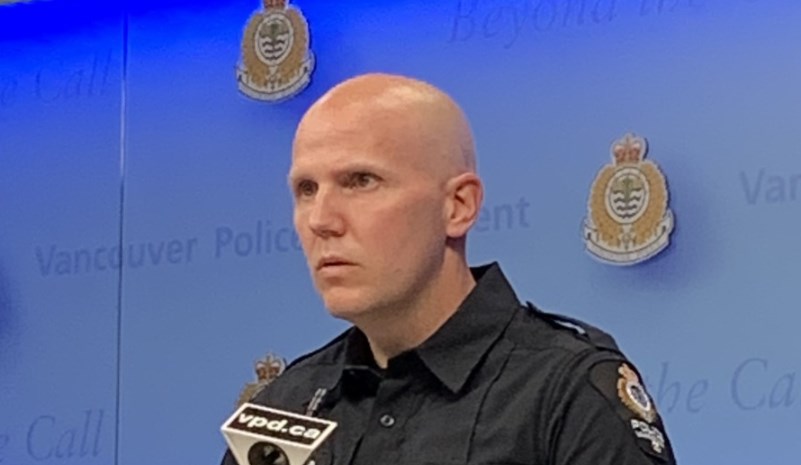Put others at risk or break the law during a COVID-19-related demonstration and you will be arrested.
That’s the blunt message from the Vancouver Police Department (VPD) Sept. 13.
“There are hundreds of protests every year in Vancouver, organized by people wanting to express a variety of opinions,” Sgt. Steve Addison said. “We support peoples’ rights to assemble and to express their views, however we must also balance those rights with public safety and consider the impact demonstrations can have on the public when critical infrastructure is blocked.”
The right to protest “doesn’t give anyone permission to harass or endanger others, to block emergency vehicles or to limit other peoples’ ability to move around the city,” adds Sergeant Addison.
Addison said multiple rights are enshrined in the Charter of Rights and Freedoms and the department works to balance those rights in its protest monitoring.
There were 587 protests in Vancouver during the first eight months of 2021. While most protests were peaceful and uneventful, officers are sometimes forced to arrest protesters endangering the public, blocking critical infrastructure or violating court orders.
The department’s Emergency Operations and Planning Unit monitors and staffs major protests in the city. Assigned officers often communicate with protest organizers to assess public safety threats and the risk of disruption before officers are deployed.
Addison said officers must perform their jobs no matter what the protest is about.
“Our officers must always set aside their personal beliefs in order to balance the democratic rights of protesters while ensuring the safety of everyone else in the city.”
He said covering protests could be more difficult when opposing groups turn out for an event. Officers are there to defuse arising conflicts.
Further, he said, it is not uncommon for members of the media doing their jobs to document events to be accosted.
Those harassing media can also face detention as if they were accosting any other member of the public.



